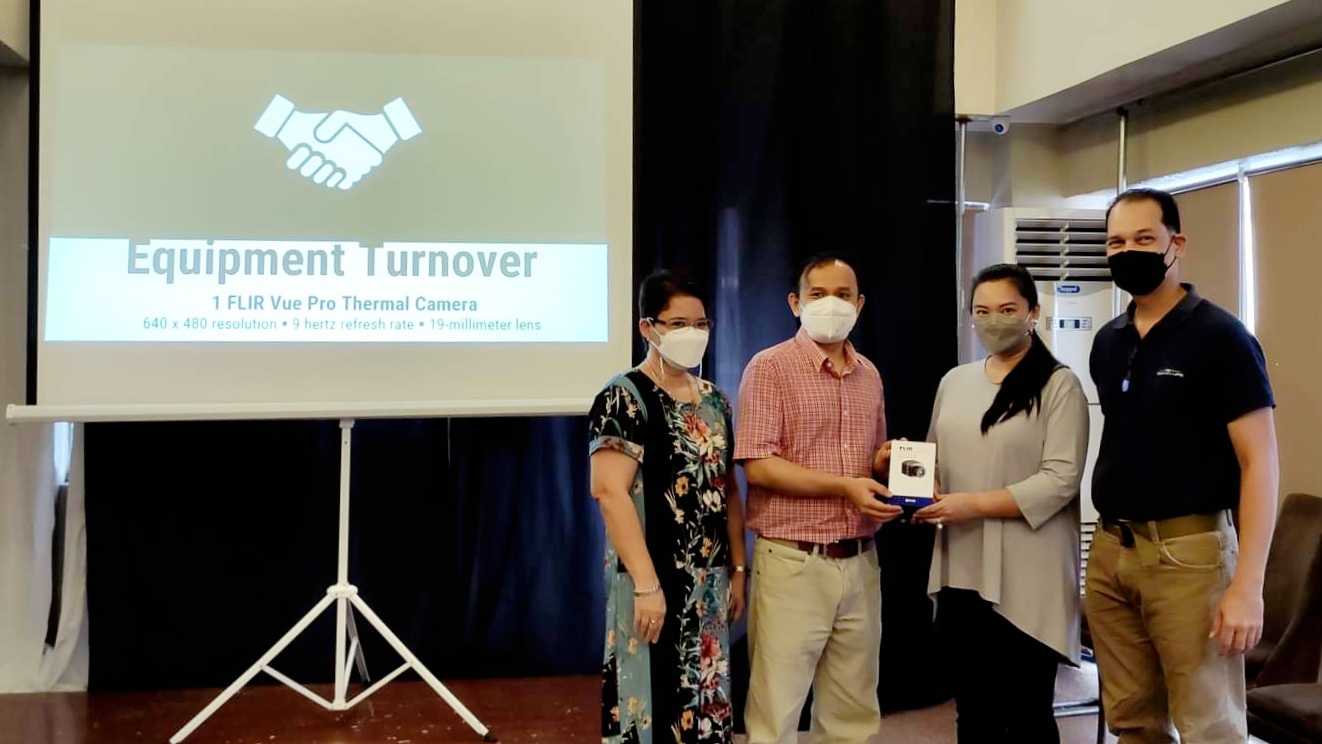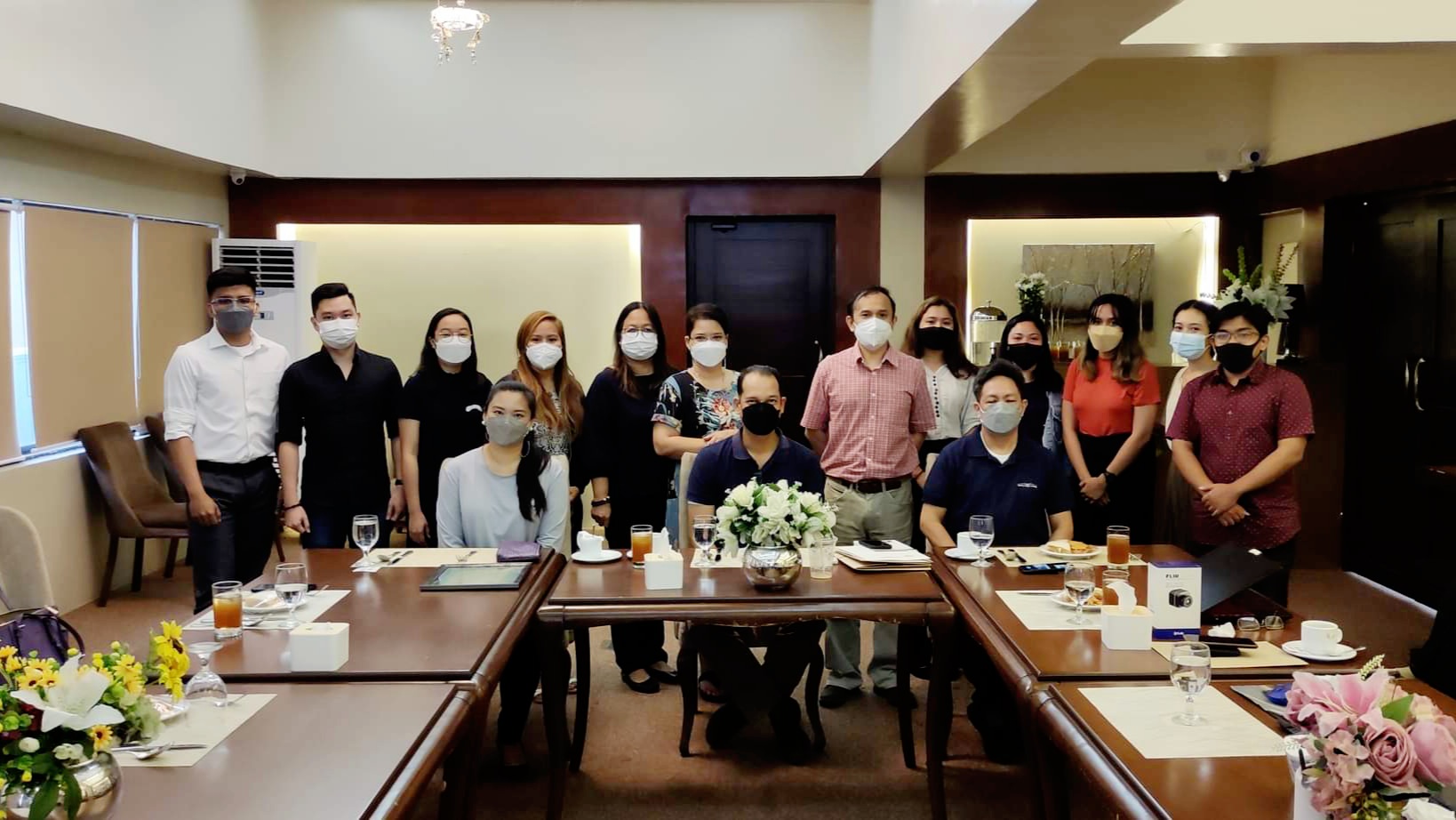Davao UAS Photography donates camera to ASIMOV-HAWKS
 |
|
 |
The Autonomous Societally Inspired Mission Oriented Vehicles (ASIMOV) Program, through the Harmonized Aerial Watch Knowledge-based Survey (HAWKS) Project, received one FLIR Vue Pro thermal camera from Davao UAS Photography in a turnover ceremony conducted on December 15, 2021. The thermal camera and data recorder with 640 x 480 resolution, 9-hertz refresh rate, and 19-millimeter lens have a market price of 3,649 USD, which translates to around 250,000 PHP or greater if procured through the usual government process. The imaging device would help expand the operational horizon of the ASIMOV Program and will be used by the HAWKS Project towards the development of subsystems for pertinent life-saving applications, such as those for search-and-rescue missions in the aftermath of disasters.
Mr. Joseph Tjader P. Regis, President of Davao UAS Photography, said “I’m really very excited with where this [direction of the ASIMOV and SkAI-Pinas Programs] is going and I’d like you to know that you have my full support. We are very happy to be a part of this in whatever way. ”
Dr. Karen Joyce G. Cayamanda, Vice-Chancellor for Administration, who represented UP Mindanao Chancellor Dr. Larry N. Digal in the event, expressed the University’s gratitude to the donors.
“We are very much grateful for this support and the donation is just one way of telling us they will be supportive of this project. Congratulations, Prof. Rubrico and the team, and of course thank you to our donors and to their expression of support for the program,” she said.
Davao UAS Photography received a Plaque of Appreciation under the name of Ms. Maria Cristina Regis, the Proprietor, for supporting the AI & Robotics research endeavors of UP Mindanao through the ASIMOV-HAWKS Project. Mr. Joseph Tjader P. Regis and Mr. Reginald Alfred P. Braceros received Certificates of Appreciation with the same citation.
Prof. Jose Ildefonso U. Rubrico, Ph.D., ASIMOV Program & HAWKS Project Leader, also expressed his thanks and appreciation to the donors for their donation, as well as to the project team and the University for their efforts and support.
After the ceremony, both parties discussed possible future collaborations and partnerships.
